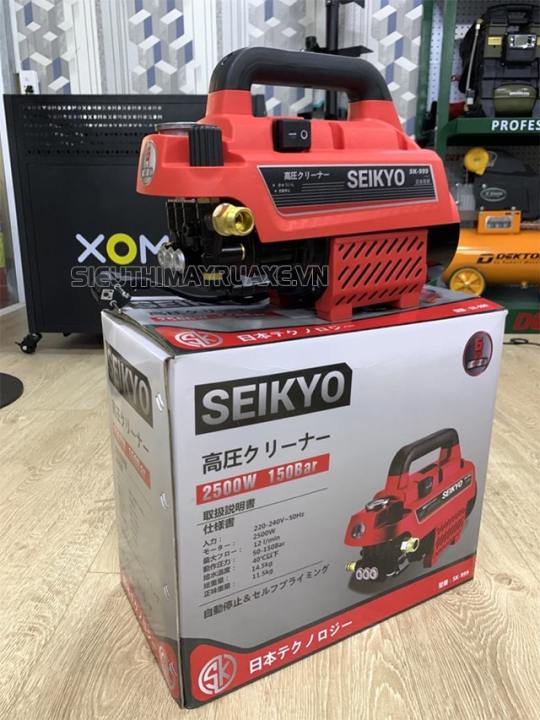#seikyo
Text
Kirbtober 2023 Day 19 - Teardrops/Mirror
Tears work very differently for artificial beings - they are usually made of some sort of liquid if it's tangible (ex. mechanicals, clones, etc) or just as projection images if not (ex. holographicals). In this case, Robobot Armor's tears are made of coolant (and contrary to belief, ONLY for tears, but their blood IS oil), which makes their tears heavy and actually pretty cold to the touch, while Seikyo, as an AI hologram, just 'makes' tears as a projection, which at least looks somewhat realistic. It depends on the artificial being's vessel, but either way, showing tears and sadness is a good sign to know that someone or something is sentient...

Prompts by @paintpanic and @peachsupremeart
Fused list compiled by @desultory-novice (click here for the list!)
I wanted to draw both of these teams specifically for this prompt... but then I realized I can use this opportunity to explain on how the two teams' steel defenders cry. So, here you go. A PSA from Team Starstruck and Meteorite Pair that it's ok to show your feelings <3
Also, today I learned that Tumblr makes your pictures blurry if it's not 500x700 :( No wonder some comics from before became blurry due to compression! I tried making the size smaller but it just doesn't click so have this for now okay good
...oh wait, you don't know Seikyo? Well... she has an origin story right here!
#kirby#kirby au#kirby art#technician uprising#kirby planet robobot#kirbtober#robobot armor#bandana waddle dee#shadow kirby#oc#seikyo#kirbytober#kirby and the amazing mirror
7 notes
·
View notes
Text
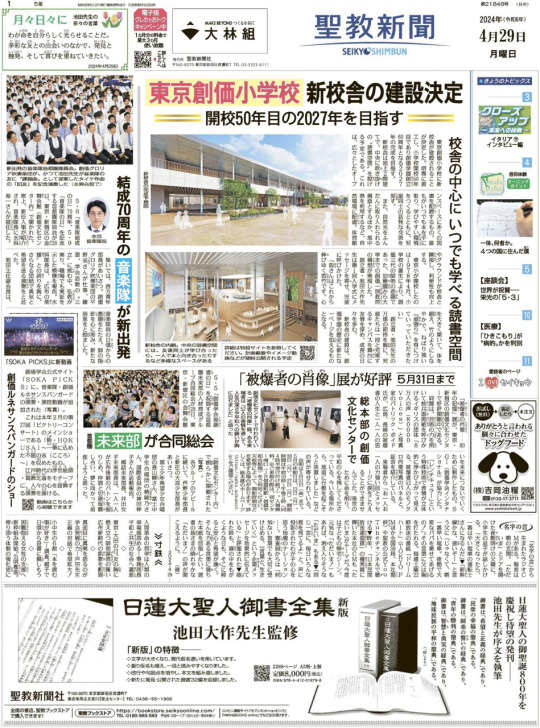
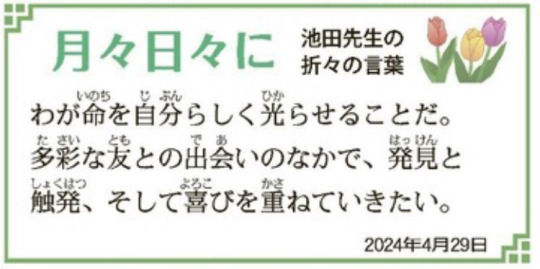
おはようございます。今日のJapanese SEIKYOです。
2 notes
·
View notes
Text


"I have just the spell to cure your mood, little lee~."

Back with another drawing! This is Melantha, she is my witch OC. She's always been interested in magic, especially when she can make people smile~.

Also, if you like my art, please reblog. Thank you~ :3
#digital art#art#drawing#tickle art#sfw tickling#sfw tickle#sfw tickling community#carina seikyo#sfw tickle content#oc artwork
29 notes
·
View notes
Text
The Dark Shadow Cast by Moon Sun Myung’s Unification Church and Abe Shinzo (Part 2)
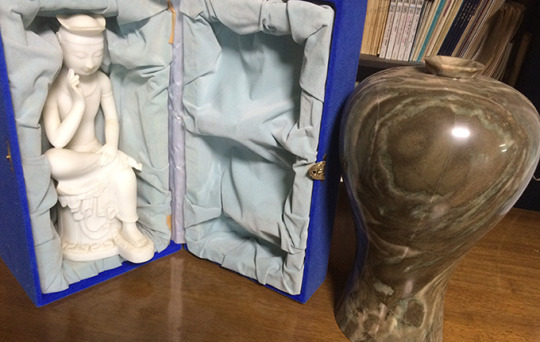
▲ Maitreya ‘future Buddha’ statue and marble vase – both made in UC factories in Korea – for sale at vastly inflated prices.
Asia Pacific Journal | Japan Focus
Peter McGill
October 15, 2022
Concealment and Deception
One of many charges made against the Unification Church is its lack of candour about numerous front groups, often given titles offering no clue as to their cult origins.
In Japan, recruitment and fund-raising have frequently involved concealment and deception. Sakurai says this has been necessary to hide both the Judaeo-Christian elements of the Moon cult in a country that lacks any monotheistic tradition, and its lacing with Korean nationalism. Recruiters “don’t disclose who they are but aim first at establishing a strong emotional relationship,” he notes. Elderly Japanese and housewives are particularly vulnerable to a strategy that employs fortune-telling and ancestor worship.
Moon’s boldest subterfuge in the late 1980s was to establish a Buddhist cult called Tenchi Seikyo (‘True teachings of heaven and earth’) to wring more money out of Japan. A ‘clandestine convergence’ of ‘traditional Japanese folk Buddhism’ with the Christian messianism of the Unification Church, Tenchi Seikyo met the expedient requirement for ‘a more direct fund-raising and witnessing approach within a predominantly Buddhist country,’ Thomas H. Pearce noted in a paper.2 The forerunner of Tenchi Seikyo was started in Hokkaido in the late 1950s by a charismatic spiritual medium, Kawase Kayo.
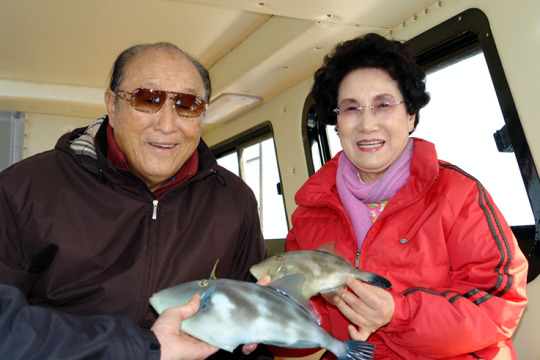
▲ Kawase Kayo with Sun Myung Moon
Her cult’s object of worship was the Maitreya ‘future Buddha’ (Miroku Bosatsu 弥勒菩薩). In the early 1970s, she secretly joined the Unification Church, but did not announce this to her followers, who continued to worship Miroku Bosatsu. This did not trouble Kawase, as according to Moon’s syncretic doctrine, the Korean messiah could also be Buddha:
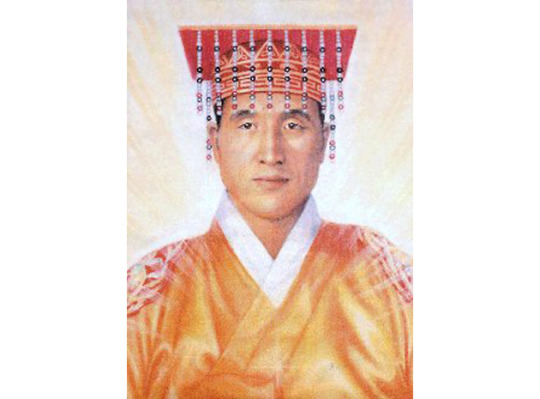
▲ Moon as Maitreya Buddha
‘Naturally, the Lord of the Second Advent [i.e., Moon], who comes as the central figure of Christianity, will also play the role of Buddha, whom Buddhists believe will come again, as well as the role of the “True Man” whose appearance Confucianists anticipate, and “Chung Do Ryung” (“Herald of the Righteous Way”), whom many Koreans expect to come. In addition, he will also play the role of the central figure whom all other religions await.’ (‘Divine Principle,’ 1973)
Kawase founded Tenchi Seikyo after receiving a “heavenly message” in 1987. The messenger was a young African who had belonged to the Unification Church in Zimbabwe. Cultists believed him to be the incarnation of ‘Lord’ Heung Jin, the second son of Moon who died in a car accident in 1986. During a visit to Japan, the African Heung Jin instructed Kawase to obtain legal status for a new Miroku church.
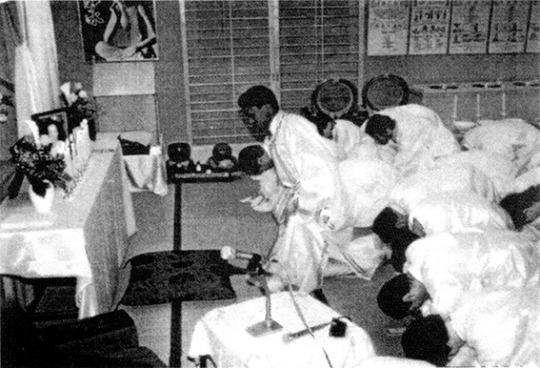
▲ Cleopas Kundiona at a Tenchi Seikyo dojo in Japan
‘Within months,’ the Unification Church ‘had organised Tenchi Seikyo centres throughout the country. Thousands of members and a large amount of money were invested in creating this new organization.’ In the 1990s, out of 111,000 followers of Tenchi Seikyo, only 8,000 had been informed that the Miroku Bosatsu they were worshipping was actually Moon Sun Myung. Members of the Unification Church were in charge of running the Tenchi Seikyo centres, known as dojo, and they all believed that Moon was Miroku Bosatsu,’ while their ‘core concern’ was that Moon needed ‘money and members to save the world.’ Pearce was told by an officer of Tenchi Seikyo that his cult had made ‘very large contributions to Moon.’
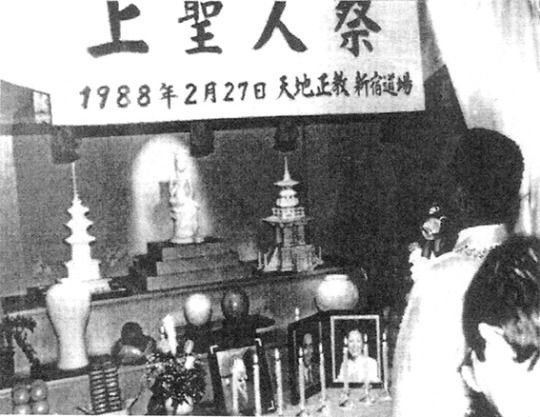
▲ Cleopas Kundiona at a Tenchi Seikyo dojo in Japan. Note the miniature pagodas and the marble vases.
In order to peddle Unification Church products, such as marble vases, miniature marble pagodas, ivory inkan seals, Buddhist prayer beads and ginseng tea, Japanese consumers first had to be won over.
Typical Moonie approaches to Japanese strangers have included “Please cooperate in this questionnaire into youth consciousness,” or “I am studying palm reading. There are stress lines in your hand that indicate a transition period.” Bit by bit, they drew out personal worries, and family and financial misfortunes.
Pearce interviewed a Unification Church female member who claimed to be a trainee monk and gained entry to Japanese homes by promising to read a householder’s fortune. The kanji characters of the victim’s name inevitably would indicate trouble in the spirit world, but this could be rectified by buying a new inkan seal. After the order was placed, the Unificationist would continue to visit the house and give instructions on worship at the family altars, so that the ancestral curse would be lifted. Once the inkan arrived, the target would be invited to a showroom for the sale of marble vases.
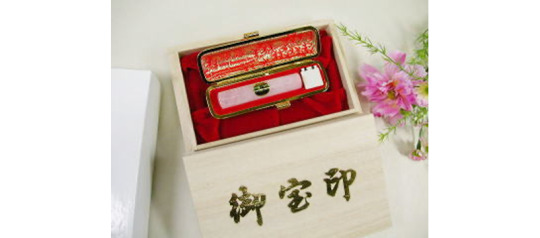
▲ Inkan name seal
Remedies from bad karma, “to free you from the fateful destiny of ancestors,” were all exorbitantly expensive. One bottle of concentrated ginseng extract was peddled for ¥80,000. A carved pagoda would set you back ¥5.4 million. Missionaries scanned death notices to identify the recently bereaved, who were then offered special communication channels to the spirit world in return for a sizeable donation.
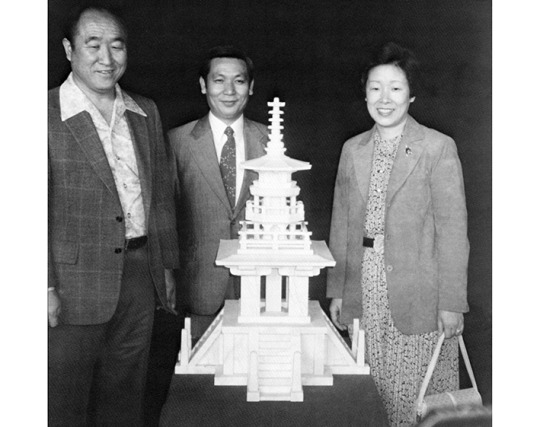
▲ Sun Myung Moon and Hak Jan Han with a miniature pagoda. They claimed they knew nothing about the pagoda scam in Japan.
The Unification Church has defended such fraudulent practices. “Imagine that one of our ancestors committed a sin in his life and is now in hell, but let’s say he can ascend to heaven from hell through our ancestor donations. He can be freed from hell. How great is this?” spokesman Ahn told the Al Jazeera news channel in 2012.
The Asian financial crisis of 1997-8 dealt a heavy blow to Unification Church finances. In 2005, Moon’s fourth son Kook Jin, who has an MBA from the United States, was put in charge of restructuring the Tongil (‘Unification’) Group, the church’s business empire in Korea.
In 2012, Moon Kook Jin told a Unification Church assembly in Seoul that the cult had “fought a very difficult battle against the Japanese government’s persecution of our church” and had “prevented the government from closing our church down.” Both membership and income in Japan had posted healthy growth, he assured cult members. Net membership in Japan increased by “15,000” in three years and debt incurred from settling legal claims had been cut by more than $300 million. “We are doing just fine,” he assured.
If confirmed, this increase in membership may be linked to targeting of Zainichi ethnic Korean permanent residents, who either immigrated to Japan before 1945 or are descended from them.
According to Sakurai of Hokkaido University, most members of the Unification Church in Japan “are ordinary Japanese.” However, in 2005 the Public Security Intelligence Agency reported that a “unique group” had established “a new organization with the purpose of gathering Koreans living in Japan and that exhibited attempts to extend its influence by incorporating these Zainichi Koreans and affiliated parties” and was “inciting a sense of danger and anxiety” to expand its power. The following year, the agency added that the group “advocates the unification of the Korean Peninsula and has made moves to create friction with Zainichi organizations by making Zainichi Koreans and affiliated parties attend gatherings in South Korea and through other means." In response to opposition questions in the Diet, the Cabinet clarified on August 15 that this “unique group” being monitored was the Unification Church. It was categorised as unique because of “doctrines and claims that deviate from social norms.”3
A huge Moon Church scam in Japan is revealed
#unification church#sun myung moon#hak ja han#ffwpu#UC of Japan#Peter McGill#Kawase Kayo#Tenchi Seikyo
0 notes
Text
When Thousands of Locals Organized Against Tenchi Seikyo, the Unification Church’s “Buddhist” Sect
The following post is a Twitter thread from Jeffrey J. Hall (@mrjeffu)
HBC has a special report about how the residents of Shimizu, Hokkaido came together in 1995 to block Tenchi Seikyo, a "Buddhist" group that was actually affiliated with the Unification Church, from constructing a major facility in their town.
youtube
About 8,000 of the town's 12,000 residents signed a petition against the facility's construction. Residents also put up signs like this on their doors: "We reject Tenchi Seikyo and the Unification Church."
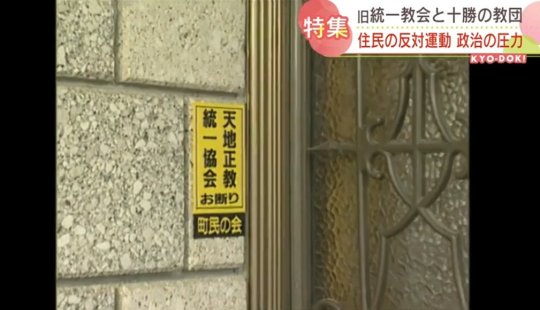
Prof. Sakurai Yoshihide is interviewed, discussing how the Unification Church conducted "spiritual sales" through other organizations, including Tenchi Seikyo. At the time the Unification Church was facing a lot of media scrutiny for its practices.
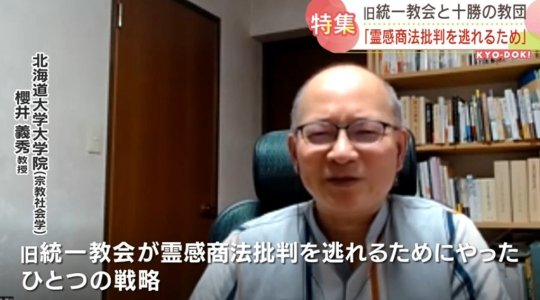
An English language article about Sakurai's research on this topic is available online (open access). It is a fascinating read. This excerpt describes the spiritual journey of Tenchi Seikyo's founder, from independent psychic to Moon follower.
https://eprints.lib.hokudai.ac.jp/dspace/handle/2115/33974
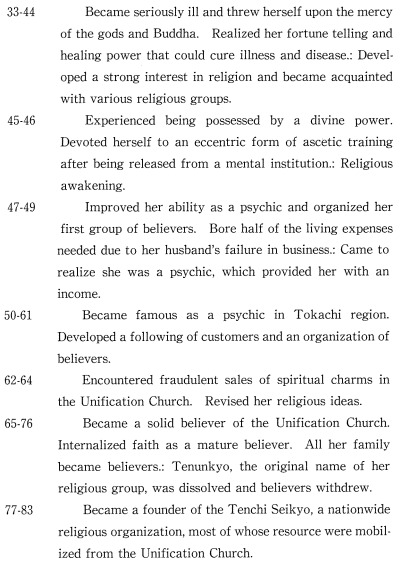
Another good read on this topic can be found in the Japanese Journal of Religious Studies (@JJRS_NIRC). Thomas H. Pearce explains how the Unification Church benefitted from the creation of Tenchi Seikyo: https://nirc.nanzan-u.ac.jp/journal/6/issue/149/article/884
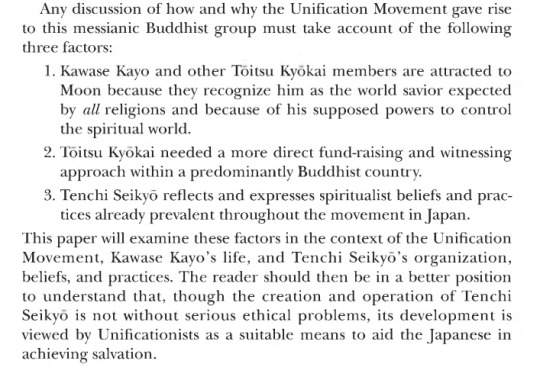
The HBC report notes that after 1999 Tenchi Seikyo merged with the Unification Church. Although it still has an HQ building, it seemed inactive. Its land in Shimizu now bears a UC sign and has a small stadium-like structure there.
https://www.google.com/maps/place//@42.8780168,142.8836231,568m/data=!3m1!1e3?entry=ttu
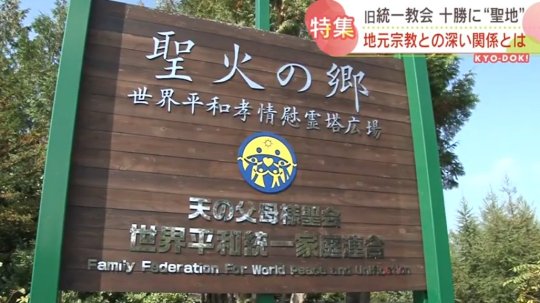
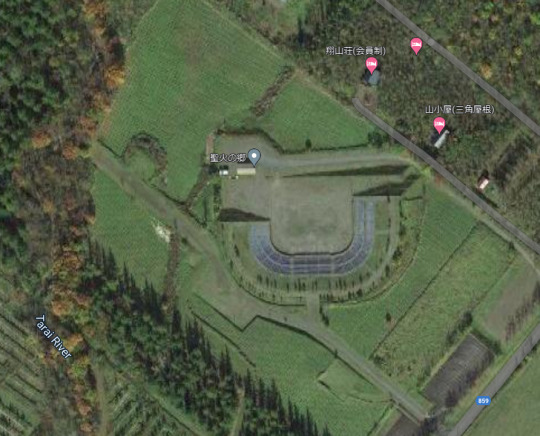
________________________________
Related
“Japan. Wow! My eyes were opened.” A huge UC scam in Japan is revealed.
Black Heung Jin was involved in turning a Buddhist religion in Japan into a fundraising machine
Business engine of a global faith (2010)
Reverend Moon Rises Above Ailing Businesses (1999)
Jeffrey Hall on the Unification Church Property Near Tama Center
#religion#buddhism#tenchi seikyo#scams#fraud#unification church#protest#unification church in japan#ffwpu#family federation for world peace and unification#moonies#cult#hokkaido#1995#jeffrey j. hall#jeffrey hall
0 notes
Text
thanks whoever sent those funny oc talk pencils. it took me a long time to get to the umezawas because there’s soooo much to say and i didnt say all of it but i’m TOO TIRED and its already long enoughhhhh
#roarkposting#tomoe's life has gotten worse but her lore has gotten better since her initial concept i 'wrote in like 2 1/2 hours' at '1 am'#seikyo got a name and a personality#setsuna began to exist#life is good..... but not for them lol#all three of them are fucking so depressed and none of them are dealing with it well! not one!
1 note
·
View note
Text
Ginji's character (ramblings)
night's the strongest for brainrot
⚠️⚠️unedited, also NO ONE in this conversation is a native english speaker (some parts were translated or held in other languages as well)⚠️⚠️
Akira: … well it depends on who you're relating more as a character as a reader. I am impressed to see someone who is relating to Ginji as a character-- a scarily smart person--
KongMengDo: Ginji is not only extremely intelligent, but he is also a very cruel man. He's a brutal man, a man of enormous ambition, and it's certainly difficult to sympathize with him as an extraordinary human being, but lately I've been thinking about how much Ginji cared for Morita, and how even a man like that is capable of such fragile emotions as love…
Akira: aah yes that's exactly my own draw to the Ginji as a character as well--
KongMengDo: But I'm afraid that my thoughts will lead me to misinterpret the character of Ginji. I need to keep a good balance…
Akira: I was reading it from the perspective of Morita up until the mahjong arc, where Ginji was cruel to ask Morita to die (kill himself), but I saw this as such a pure declaration of love I couldn't handle not falling into GinMori then haha;;
before mahjong arc: ah Morita's having a young love crush on this smart mentor figure he's found, Ginji's of course smart and cool and wealthy, so a naive young man would want to both respect and learn from him as well as keep his tender young love close
after mahjong arc: Ginji's as little in control of everything as Morita-- maybe he intended to use Morita for a heist or two, now Ginji's probably impressed of Morita making such a huge progress in so little time, he can depend on Morita in high stakes deals he wasn't capable to participate in without a trustworthy partner;;
and then we see the scene about that villain old man talking about cages and people he keeps in them and their treatment, Ginji is as taken aback by this as Morita in the scene itself;; so he didn't know, he is on the equal terms with Morita, though he has more experience than him-- which he doesn't hesitate to share! in his cruel way…
"See, this isn't the kind of deal you can handle with regular methods, such pressure can only be handled with equal resolution-- so die, Morita" <-that's a solid proclamation of utter caring and love in my eyes lol;; I mean thats the cruelest we see Ginji so far right? It can't even compare to Ginji "breaking up" and leaving Morita at the hospital rooftop-- and such a strong emotion is totally catching your eye as a reader
I think this is my root of Ginji's method of loving being the cruelty-- at least that's how I work with these characters
what if Ginji just searched for an equal partner to handle him;; that's a romantic type of thing instead of straight and direct partnership in business
ah well, that's just how I romanticise them 🥰 🥰 doesn't mean I'm that close to canon of course! just sharing the thoughts for fun
KongMengDo: Ah, that scene--Ginji giving Morita the knife… I was mesmerized by this scene too. It's a scene in which Ginji reassures Morita ("You don't have to suffer the pain of being treated like an animal. If you lose, don't worry about me, just die in peace.") while also referencing the nature of gambling that Morita had mentioned earlier.
The essence of gambling, Morita said, is the act of jumping off a cliff. Morita said that the essence of gambling is the act of jumping over a cliff without knowing how wide the distance between the cliffs is. (I don't have the scene in front of me right now, but it's probably close.) Yasuda heard this and labeled Morita as reckless. Ginji, however, sympathizes with Morita, and says that only Morita who thinks like that can win at Seikyo Mahjong.
However, in the middle of the game, Morita loses his composure and plays mahjong in a death-defying situation. So Ginji gives Morita a knife, reminding him once again of the nature of gambling!
So this act of Ginji's is an act of consideration for Morita, and it shows that Morita is the only one who can understand Ginji's mind… (If it were Yasuda, he would have yelled at Ginji, "Are you out of your mind?")
Akira: I'll be completely insane and say that when Yasuda says they're both reckless I usually think of Ginji and Morita just laughing it off like "yeah! we are!" and going to drink somewhere just two of them lol;;; I mean their characters are very consistently bouncing off of each other like that-- its truly a miracle for Ginji to find someone so close to him in mindset yet not corrupted by horrible experiences yet, that he openly admires Morita's principles and says so aloud as well
I mean the first part of the manga was trying to show us the "Ginji's looking for a successor" kind of plot, so it makes sense;;
"oh I wish someone would continue my goal even as I get senile" kind of thing, but then it turns around-- then its Morita in danger in serial killer arc and Ginji's no longer "who's going to inherit my life's work?!" kind of way-- Ginji's saying "I want to rule this country Together" instead
well, thinking of finding someone decent to continue what you were doing and maybe adding their new touch to your work is one thing; its totally different when you want to see and participate in it directly, it means you'll be totally involved and want to collaborate- it becomes personal with the person you've chosen
so I think its a natural progression of Ginji and Morita becoming closer too
this shift in Ginji's wishes and plans on Morita I mean
what could've caused it is up to interpretation: it could be Morita being in first grave danger (my CP mind whispers), it could be Ginji being impressed by so called luck he saw (all crossroads were green when I drove here), or even Morita just being the sole surviver due to his natural street smart thinking as well
it could be Ginji gambling too-- he could've sensed that maybe Morita really has the potential and he is worth investing into-- but wasn't sure enough of it yet, but still wanted to see it go further-- "yeah maybe he's just lucky and maybe he's alright-- anyway he can't just die here", which leads us to Ginji putting up yet another test period on Morita (hence art critic and poker arcs) where he just wants to see if Morita truly has not only the potential but also the motivation to progress and get polished as well; or will he be just depending on Ginji leading him (which is totally not a strong character as well as not what Ginji was looking for-- just an apprentice to teach? yeah 'Tetsuo' isn't a name he deserves then, or something like that haha)
KongMengDo: Early on in the manga, when Ginji says he's looking for a successor (in GtK volume 2? before the killer Ariga shows up), the successor he's referring to is not his own, but some other old man's. But for some reason, FKMT scrapped this canon - it's kind of a MacGuffin!
Of course, later in GtK, Ginji does refer to Morita as the heir to his kingdom… But since fkmt scrapped the "Ginji is looking for an heir to inherit what belongs to some old man" canon, we'd have to say that when Ginji tested Morita, he was just trying to figure out if he was a useful human being.
Akira: oh rly? i have to check, it can be some kind of translation issue as well!!
KongMengDo: It's probably for sure! I'll have a search on the Japanese wiki…
Akira: ultimately it backfired on him, I'm sure Ginji didn't think Morita would leave him and retire-- he must've been head in the clouds due to all the success they've shared so far--
I think Ginji was a bit too self absorbed to see that he is still practicing his old bad habits even if he already knew Morita is a special deal-- "ah I'll still pretend he's my student and teach him through cruelty, because that's how its comfortable for me" because I bet it worked out for Ginji before, I bet he knows how to manipulate, gaslight and predict people-- if only he'd stop and think of Morita being not like other people he swirled around before hehe-- because as soon as Morita got hit with the thought of "no, actually, Ginji is not right in his ways, actually I can see he got lost in his pursue of becoming the greater evil" (<- this is the point my CP mind starts thinking Morita would probably feel the "if you love someone, let them go" kind of way, just because it'd be too painful to see Ginji burning down to ashes when pursuing his dream in front of Morita's eyes)
as soon as Morita got hit with this thought (sorry, I sidetracked a lot), he immediately knew what to do, unlike anyone else who'd start overthinking or self doubt their way
because that's how manipulating someone usually works- you make a person think your way instead of a natural straightforward and easy to see way that would've occurred to anyone who is not involved
KongMengDo: I completely agree with this! And I want to add to this, Ginji not only trusted Morita to be easily manipulated, but he also trusted his own coolness. "Morita is my successor and partner, of course, but he is not a very important person to me… Of course, it would be a great pity if he disappeared, but I can always find a replacement." In other words, he was an arrogant man. Even if he had lost Morita, he hadn't realized that he would also lose his dreams! If he had known that would happen, he wouldn't have let Morita go so easily…
Akira: what is impressive in GtK as a story is that up until the end of Kamui arc its very predictable in its direction for the reader: ah a young man finding a tutor, then Morita's character development, then they're doing this together, and Morita would learn and then succeed, he's be gold to the silver and that's a happy ending…! but its a great subversion of expectations for the reader, because epilogue of Kamui arc should've been a pat on the shoulder, Ginji saying "yeah I'm sorry for putting you through this" and Morita saying "yeah.. that was tough…", have tears in his eyes but resolution to continue, as if saying "I knew it'd be this tough and I'm ready to follow you to hell and back anyway! thats my way of living now and I'm taking full responsibility over this decision" except that's totally not his decision and instead Ginji would've been successful in manipulating the other;; so yeah it's amazing he was resilient to this! and broke things down and retired it was the perfect moment for this, even if it was heartbreaking for everyone
I rly like to think Ginji was put on spot with Morita's declaration of retirement and just went along the flow ignoring his own feelings haha
"Ah you're retiring? whatever you'll return, or even better- I knew everything would end this way! so I'm the last to laugh anyway" and he gets out of the room even before Morita can elaborate or they would talk it through--
KongMengDo: That's right, he was ignorant of his feelings too! Ginji knew about Morita, but… He was ignorant about how he felt about Morita! I think of this as arrogance… "I don't love others, I wouldn't do such a stupid thing."
Akira: and Morita is generous enough to let Ginji go and let him think whatever he'd like to, maybe that's Morita's last act of caring for Ginji too-- "ah, if he'd hate me for leaving so suddenly, its fine… I'll cheer for Gin-san from the sidelines, but I'll find my own way… because the one I was following up until now would only end up in me watching Ginji turn to ashes and I don't think I can handle it"
obviously Morita knew he'd get corrupted sooner or later with working under true scum villains too-- but I don't think that was his main motivation for leaving obviously
its like this: working for Kamui is awful, I can feel my own principles not aligning with Kamui's leader at all -> he's Ginji's acquaintance, they are connected in one way or another -> I don't think I can handle working like this for much longer -> besides that I can see Ginji would not last much longer chasing a dream with such methods -> Ginji won't back down now, I can't just talk it through, it's already too late to change his track record and way of achieving his goals -> then the only thing I have control over is myself and I surely won't wait until the point of no return as well
haha I think my interpretation is getting far fetched the longer I talk lol;; but I am just a mix of canon and CP thoughts! I hope it's interesting anyway--
KongMengDo: I think the biggest reason Morita retired was because he realized what it meant to be a villain. All along, Morita didn't want to be a poor, weak, good guy. Instead, he wanted to be a cool villain. In Morita's eyes, this villain might have looked like dark hero, but being a villain was something really disgusting… Morita realized that in the kamui episode, and he was afraid that if he worked with these villains for much longer, he would lose his humanity…
Moyo-san told me, iron rusts easily when exposed to blood. Morita's iron-like features, his upright and pure heart, would be spoiled by exposure to cruelty… Morita was afraid of that, and Ginji allowed Morita to leave him. I think Ginji's choice was made because, unconsciously, he loved Morita's humanity, his innocence.
So this is really a huge love… It shows that the love they have is huge because they chose to separate…
Akira: aah iron rusting in blood is such a strong metaphor--!!
also yes I truly think Ginji's lack of control shows further in Kamui as well, I bet he didn't plan ANYTHING to turn out like this-- not only Morita retiring but also Morita getting in touch with Kamui this personally close, learning everything about family as well as participating in bloodshed directly as well--
yet he pretends awfully for his own sake of not losing it all too-- "of course! Morita would not handle such thing… well it's his loss… I can do it alone like before…" <- totally awfully misunderstanding his own feelings and ignoring them-- because I too think that Ginji rly wanted Morita's white principles to continue shine, he didn't want Mori to get corrupted as well-- so of course he'd let him go as soon as Morita would make his mind… he didn't know he would (I think Ginji would like to hide behind his cruelty when its convenient for him to), yet when he heard Morita speaking up his mind of course he'd accept his retirement-- because well you can't make a bird sing in a cage;; I think Ginji's heart would break to see Morita being by his side out of guild or anything else but Morita's pure trust and wishes
Akira: awful 1994 heartbreak doesn't leave our minds and makes a decent amount of people insane as a result…!!!
KongMengDo: Yes, Morita was indeed a man with a heart of gold---….
4 notes
·
View notes
Photo
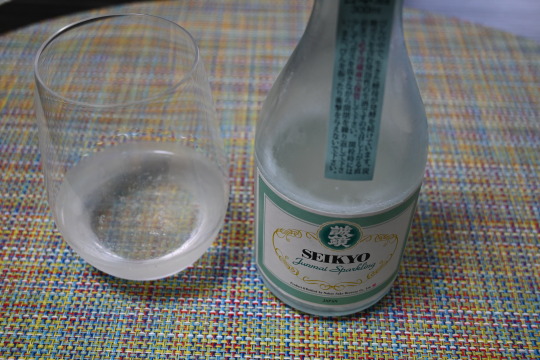
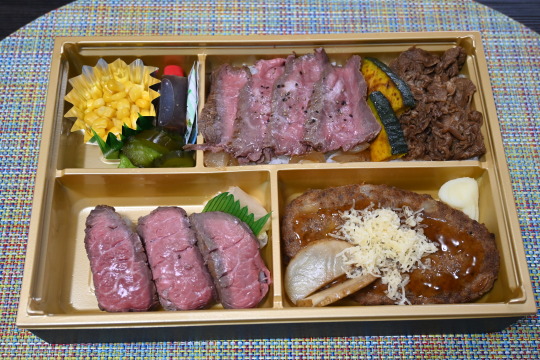
Seikyo(Japanese Sake/誠鏡 純米スパークリング) & “Uemura” Beef Bento - May 2022
36 notes
·
View notes
Text
Acordando com o Mestre:
A proteção está mais perto do que você imagina
Brasil Seikyo, Edição 2298, 07/11/2015, pág. C2 / Conheça o Budismo
Ative as divindades celestias por meio de sua convicção. A fé corajosa aciona as funções protetoras capazes de transformar de forma positiva o seu ambiente
“As divindades celestiais e as divindades benevolentes assumirão várias formas, como as de homens e de mulheres, e farão oferecimentos para ajudar os praticantes do Sutra do Lótus”
Nichiren Daishonin
Quem são as divindades celestiais?
As divindades celestiais, divindades budistas ou divindades benevolentes (shoten zenjin) descritas no Gohonzon, como Brahma e Shakra, [as divindades do Sol e da Lua] atuam em proteção aos praticantes budistas. O budismo explica que suas funções protetoras podem se manifestar por meio das pessoas. Ou seja, de abstratos, esses atributos se tornam concretos.
Com a fé e a recitação do Nam-myoho-renge-kyo, você incorpora a benevolência e a gratidão, características das divindades celestiais, e cria uma rede de solidariedade e compaixão ao redor.
Por exemplo, diante de uma dificuldade, as pessoas que aparecem para oferecer ajuda não surgem por acaso. Especialmente as que têm no coração benevolência e gratidão são consideradas pela ótica do budismo divindades celestiais e divindades benevolentes. Nichiren Daishonin dizia que “As divindades celestiais e as divindades benevolentes assumirão várias formas, como as de homens e de mulheres, e farão oferecimentos para ajudar os praticantes do Sutra do Lótus” (CEND, v. I, p. 35).
O presidente da SGI, Dr. Daisaku Ikeda, explica essa frase no contexto da vida diária: “Definitivamente aparecerão pessoas que nos protegerão quando nos depararmos com problemas e dificuldades” (BS, ed. 1.156, 14 dez. 1991, p. 4).
Nos momentos difíceis de doença, acidente ou mesmo morte de um ente querido, são estas “pessoas” de coragem e benevolência que atuam como divindades budistas para que você não desista e seja capaz de superar o sofrimento e seguir em frente.
Pode parecer estranho afirmar que as divindades celestiais são pessoas, mas, segundo o budismo, a vida humana em cada momento abarca todos os fenômenos e se estende ilimitadamente por todo o universo. O potencial da vida de uma única pessoa é infinito. Por isso, o foco do Budismo de Nichiren Daishonin não está na adoração a deuses ou divindades, e sim na fé de que a vida merece total reverência.
Não é sobrenatural, é energia vital!
No budismo, existem divindades internas e externas:
Divindades internas são sentimentos; os mais nobres são gratidão e benevolência.
Divindades externas surgem em resposta aos nobres sentimentos que o ser humano nutre em seu coração diante das adversidades.
As divindades externas são divididas em três grupos:
Ações de pessoas próximas: Referem-se à ajuda que recebemos daqueles que reacendem a chama para enfrentarmos os desafios do cotidiano.
Funções da natureza: São os fenômenos naturais que nos protegem e reativam nossa energia vital. O sol de outono, naquela manhã de frio cortante ou mesmo a brisa refrescante do mar, em meio ao calor escaldante.
Fenômenos inexplicáveis: São fatos, condições e situações extraordinárias, apontados popularmente como “coincidências”. Você não consegue explicar, mas sente que foi protegido.
Quando não dá para explicar a razão de um acontecimento, é comum as pessoas atribuírem à ação de deuses ou de forças sobrenaturais.
O problema dessa visão de divindades como entidades externas é separar os fenômenos externos do ser humano. Nesse sentido, a imaginação é usada para alimentar crendices. E na medida que se popularizam essas visões, os seres humanos vão sendo rebaixados a segundo plano.
A questão aqui não é a crença nesta ou naquela entidade, e sim se o ser humano deixa de ser protagonista da própria vida para se tornar coadjuvante.
A proteção externa [ações das pessoas, funções da natureza e fenômenos inexplicáveis] é a energia vital do ser humano; quanto maior a energia, maior a proteção.
Ao ativar sua energia vital com a prática budista é possível transformar a realidade por meio de suas ações. Tudo é oportunidade de manifestar a benevolência, e em gratidão, você cuida das pessoas protegendo-as.
Acreditar em quê?
O primeiro passo é acreditar que tem o potencial do estado de buda, a melhor forma de se autoproteger.
Sabiamente, a fé é convertida em coragem para viver de maneira segura e feliz, conforme ensina Nichiren Daishonin. Acreditar que a vida merece total reverência é a fé do estado de buda que já existe em cada pessoa, e que as desperta para a benevolência e para a gratidão.
Mas a fé não deve ser desviada para algo externo porque transformará o indivíduo num ser dependente e sem confiança. É como se vivêssemos aguardando a vida magicamente mudar sozinha. Isto não é budismo!
Do contrário, reconhecer a existência de uma força maior — a vida que transcende o indivíduo e abarca o universo —, faz surgir dentro de si a esperança e a iniciativa de transformar tudo ao redor.
Acione as divindades celestiais agora!
Questione-se: “Hoje estou mais confiante? Sinto-me revigorado? Tenho vontade de desfrutar a vida?”
Tudo depende de como percebe e experimenta os fatos da vida.
Ter proteção não significa que as coisas darão certo ou errado ou se tal fato deverá ou não acontecer. O coração é o que realmente importa. Precisamente se a sua vontade de viver aumentou ou diminuiu.
Tudo parte do coração e retorna a ele. Mesmo os fenômenos inexplicáveis saem de dentro de você e o influenciam positivamente de volta.
Protegido, você não passa o dia gastando energia; ao contrário, seu ânimo se renova conforme os fatos acontecem. Isso porque, com a sabedoria da fé, você converte todos os acontecimentos em funções protetoras externas.
A primeira oração silenciosa do gongyo realizado pela manhã, na verdade, é a reafirmação da sua fé e a ativação da sabedoria. Esse esforço para aumentar a energia vital faz surgir a força mental e o bem-estar.
A partir dessa sensação boa, tudo no seu dia fluirá num ritmo harmônico. Se acontecerem fatos desagradáveis, seu ânimo não diminuirá, pois compreenderá que os obstáculos surgem naturalmente como consequência do seu avanço.
Os desafios cotidianos despertarão em você coragem e disposição para enfrentá-los. E, no seu coração terá a certeza de que vai vencer. Se no fim do dia se sentir vitorioso, com ânimo e coragem, comemore, afinal acionou as fun��ões protetoras do universo.
Quem pratica o budismo sempre vence
No budismo, é comum afirmar que nas adversidades o que decide a vitória é o sentimento que domina o seu coração. Logo, sentimentos que fortalecem a fé atraem a proteção das divindades budistas, e os que a enfraquecem, não.
Mas, em momentos de dificuldades, pensar em benevolência ou gratidão pode parecer algo inimaginável. E fortalecer a fé quando nada segue como planejado é ainda mais complicado.
A prática budista serve justamente para fortalecer o seu interior e a sua fé, fazendo-o manifestar benevolência, coragem e gratidão no momento crucial.
Isso acontece porque, ao recitar daimoku, você reúne em seu interior os mesmos sentimentos que existem no coração do Buda, que são as funções protetoras do universo, e que agora despertam em sua vida.
Com essa capacidade, é possível perceber os fatos como eles realmente são, e o que era uma dificuldade se transforma em impulso para torná-lo forte e feliz.
Quem pratica o budismo sempre vence e é feliz, porque dentro de si a benevolência e a gratidão criam raízes. Você não é mais refém dos obstáculos.
Boa sorte sem fim
Uma pessoa de forte fé é capaz de ativar as funções protetoras a seu favor, que se manifestam como sabedoria e boa sorte. E essa é a forma de viver que realmente importa no budismo. É manifestar o “grande eu” que supera tudo e brilha.
O presidente Ikeda afirma:
“Nichiren Daishonin e Shakyamuni foram verdadeiros revolucionários, com uma paixão intensamente ardente. Shakyamuni derrubou a concepção prevalecente de que ‘as pessoas existem em benefícios dos deuses’, ensinando que, ao contrário, ‘os deuses existem em benefícios das pessoas’.
As ‘pessoas comuns’ são as mais nobres e respeitáveis. As pessoas comuns que lutam em prol do kosen-rufu são budas. Esse é o segredo do Buda. Foi para ensinar esse ponto fundamental que o Buda apareceu neste mundo” (BS, ed. 1.544, 19 fev. 2000, p. 4).
O segredo do Buda é a fé — o seu poder interior que move todo o universo. O verdadeiro benefício da prática budista é a ativação dessa fé corajosa que desperta gratidão e benevolência em seu coração onde estiver, independentemente do que aconteça.
“As ‘pessoas comuns’ são as mais nobres e respeitáveis. As pessoas comuns que lutam em prol do kosen-rufu são budas. Esse é o segredo do Buda. Foi para ensinar esse ponto fundamental que o Buda apareceu neste mundo”
Dr. Daisaku Ikeda
2 notes
·
View notes
Text


design for an oc / random creechur of mine :]
Haven’t decided any of the details yet but the name is “Seikyo”
0 notes
Text
H. Berlioz. La mort de Cléopâtre
Symfonieorkest Vlaanderen, Dirigent. Seikyo Kim
Soliste. Christianne Stotijn. mezzosopraan
1 note
·
View note
Text

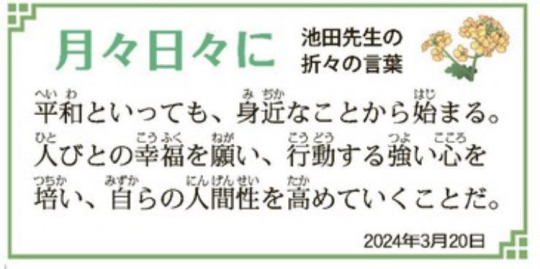
2 notes
·
View notes
Text
Ukraine Crisis and No First Use of Nuclear Weapons — Global Issues
Daisaku Ikeda. Credit: Seikyo Shimbun
Opinion by Daisaku Ikeda (tokyo, japan)
Wednesday, January 18, 2023
Inter Press Service
TOKYO, Japan, Jan 18 (IPS) – The Ukraine crisis that erupted in February last year continues with no prospect for cessation. The intensified hostilities have inflicted great suffering in population centers and destroyed infrastructure facilities, compelling large numbers…
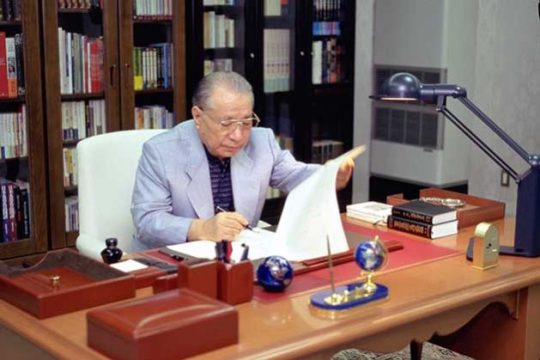
View On WordPress
0 notes
Text


"Such an interesting creature you are~."
Melantha meets Loca for the first time! Gift for @sakounari343

Melantha encounters a new little friend, Loca, and she's having a great time with him!
Loca belongs to @sakounari343

If you like my art, please reblog! Thank you!
#digital art#art#drawing#sfw tickling community#tickle art#sfw tickling#sfw tickle#sfw tickle content#carina seikyo
21 notes
·
View notes
Text

“A gratidão é a mãe do juramento, a raiz da felicidade e a essência da coragem. A gratidão nos faz mais humanos.” - Seikyo Post
Comecei esse diário em 2020, mas faz meses desde a última vez em que escrevi nele. Talvez seja uma boa ideia retomá-lo, anotar as pequenas coisas pelas quais sou grata, registrar os bons momentos do dia a dia. Faz pensar. Faz relembrar. Faz bem.

(Changginho pronto pra folhear umas lembranças por aí...)
1 note
·
View note
